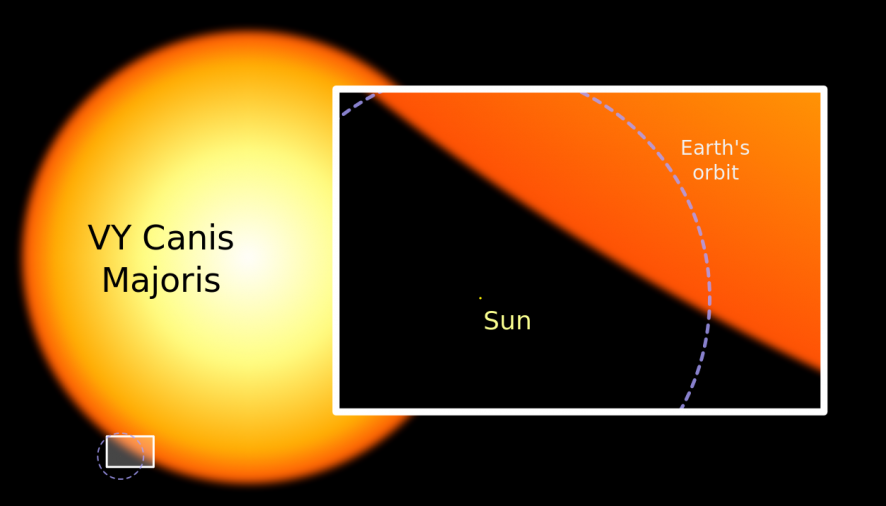- Massive stars weight loss secret revealed:
Astronomers have managed to analyse the light from VY Canis Majoris, one of the largest stars in our galaxy. This star throws off a huge amount of gas in outbursts. This makes it very difficult to image the star but with a new adaptive optics system, scientists have shown that the dust grains around the star are much larger than others in the galaxy and can be pushed away from the star with its huge radiation pressure.
- Extinction of mastodons helped the domestication of pumpkins and squash
Researchers believe that in the past pumpkin and squash was toxic to humans but not to mastodons. As the large mammals began to disappear and the landscape changed the pumpkins and squash adapted by becoming less bitter to be more palatable to smaller mammals like us.
- Mars had a dense atmosphere in the past:
Present day Mars is covered in a thin atmosphere consisting mostly of carbon dioxide but researchers are suggesting that this was not always the case. The main theory of how Mars lost its atmosphere is by a process called sputtering where solar radiation interacts with the atmosphere to remove molecules. However, a new theory has been suggested where solar radiation will ionize large amounts of carbon dioxide in the upper atmosphere causing it to be lost to space.
- Loneliness triggers cellular changes that can lead to illness:
A team of researchers have found that social isolation in older adults can increase the risk of premature health by 14%. By studying gene expression and immunology, the scientists found increased expression of genes responsible for inflammation and a decrease in genes responsible for antivirals.
- New type of fundamental particle predicted in metallic materials:
Using new modelling techniques, scientists at Princeton University have predicted the existence of the type-II Weyl fermion. This particle is unique in that it will be a conductor with one direction of magnetic field and an insulator in another. This opens up avenues for lower energy electronics and more efficient transistors.
- New computer algorithm can predict whether a couple’s relationship will improve based on tone of voice:
Researchers, using recordings from marriage therapy sessions and following couples afterwards, have produced an algorithm that can predict how a couple’s relationship will fare with 79 percent accuracy. It seems that it doesn’t just matter what you say but how you say it.
- New ‘self-healing’ will make electronics more flexible:
Researchers at the University of Texas have developed a new gel to connect and repair electronic circuits allowing the construction of flexible electronics and biosensors. Though it won’t replace the typical metal conductors in circuits it can be used for soft joints.
- Research from the University of Bristol finds no evidence for the Pause in Global Warming:
By analysing data from 40 peer-reviewed journals over the past 5 years Professor Stephan Lewandowsky has found no agreed upon definition for the apparent hiatus in climate change. The study claims that if the sample size is small enough the pause will always appear to be present and that scientists should use language that is less confusing to the public.
Sam McMaster
[Image:Oona Räisänen, hosted on Wikimedia Commons]

